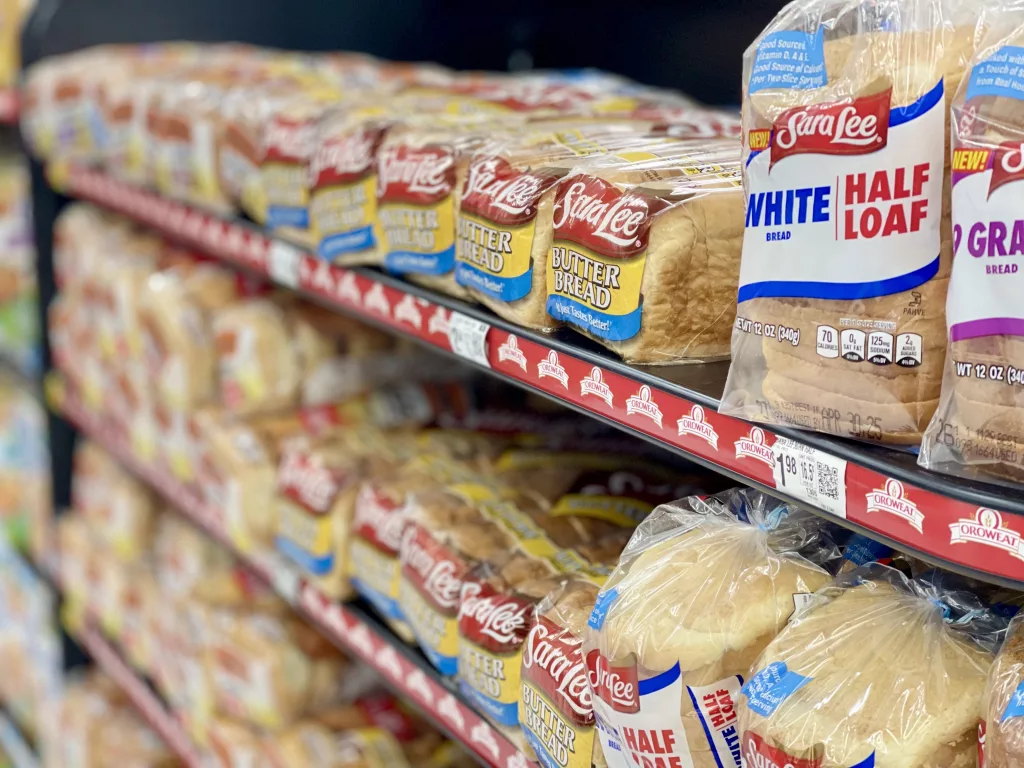BENTONVILLE, AR – Walmart CEO Doug McMillan said Thursday that tariffs will increase consumer costs no matter how hard the giant retailer tries to keep them down. He also said the company plans to move production to the U.S. where possible.
Walmart is the world’s largest retailer with over 1 billion square feet of retail space at 10,784 stores around the globe. McMillan said given the “magnitude of the tariffs,” the retail giant won’t be able to protect consumers from higher prices.
“We will do our best to keep our prices as low as possible. But given the magnitude of the tariffs, even at the reduced levels announced this week, we aren’t able to absorb all the pressure given the reality of narrow retail margins,” he said Thursday during the company’s first quarter earnings call.
McMillan said about two-thirds of the products the company sells in the U.S. are made, assembled or grown in the U.S.
“All of the tariffs create cost pressure for us, but the larger tariffs on China have the biggest impact. The cost pressure from all the tariff-impacted markets started in late April, and it accelerated in May,” he said. “First, we want to keep our food and consumables prices as low as we can.”
McMillan noted that inflation and other factors have increased food prices in recent years, which Walmart shoppers have been dealing with for years.
“Our customers have been feeling that all along,” he said.
The goal going forward will be to keep the cost of basics as low as possible, McMillan said.
“We won’t let tariff-related cost pressure on some general merchandise items put pressure on food prices. But as it relates to food, tariffs on countries like Costa Rica, Peru and Colombia are pressuring imported items like bananas, avocados, coffee, and roses,” he said. “We’ll do our best to control what we can control in order to keep food prices as low as possible.”
That will include controlling food waste and keeping an eye on inventory.
“In some cases, we’re holding our retails where they are despite the tariff cost pressure,” he said.
The company plans to move production to the U.S. where possible. Walmart has been working on that effort for several years and it will continue, McMillan said.
“When it comes to the general merchandise categories that are impacted, we’ll move production where that’s possible. That isn’t easy or fast, but we’ve been working on that for years, so it’s not like we’ve just started to make adjustments,” he said. “In some cases, we’ll absorb costs within a category or department, and not simply pass on a tariff cost attributable to each item individually. We’ll be managing mix across items, categories, and businesses.”
McMillan said Walmart’s suppliers are also shifting production where possible.
“We also have suppliers shifting materials from tariff impacted components like aluminum to fiberglass, where there is no tariff,” he said. “Our merchants, sourcing team, and suppliers are being creative.”
McMillan said Walmart is better positioned than others to deal with the higher costs from tariffs.
“We continue to be confident in our ability to strengthen this business even as we navigate cost of goods changes,” he said. “We’re positioned to manage the cost pressure from tariffs as well or better than anyone. But even at the reduced levels, the higher tariffs will result in higher prices.”
Trump announced a slate of higher tariffs on April 2 but suspended them seven days later. Trump said the 90-day pause was designed to give his trade team time to make deals with foreign countries to reduce the U.S. trade deficit. Trump kept a 10% baseline tariff on foreign imports and a 25% tariff on foreign-made passenger vehicles and auto parts. Trump has also kept a 30% tariff on imports from China after productive talks over the weekend.
Economists, businesses and many publicly traded companies have warned that tariffs could raise prices on a wide range of consumer products.
Trump has said he wants to use tariffs to restore manufacturing jobs lost to lower-wage countries in decades past, shift the tax burden away from U.S. families, and pay down the national debt.
A tariff is a tax on imported goods. The importer pays the tax and can either absorb the loss or pass the cost on to consumers through higher prices.





